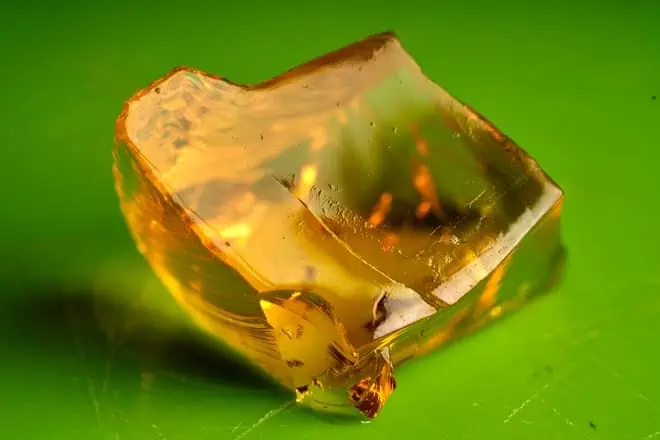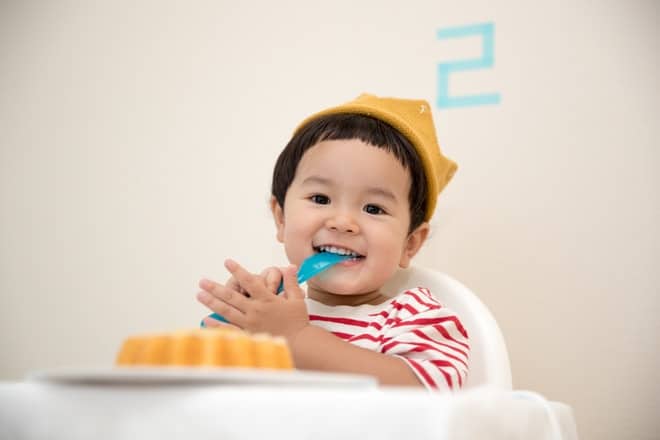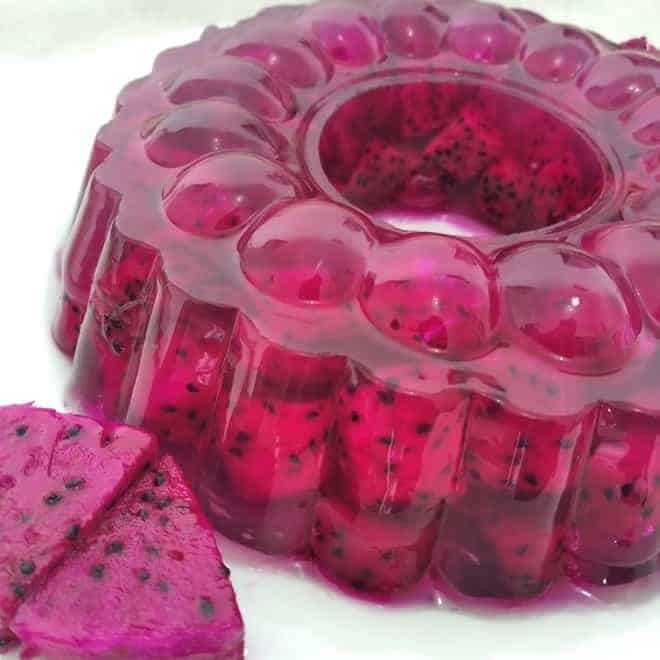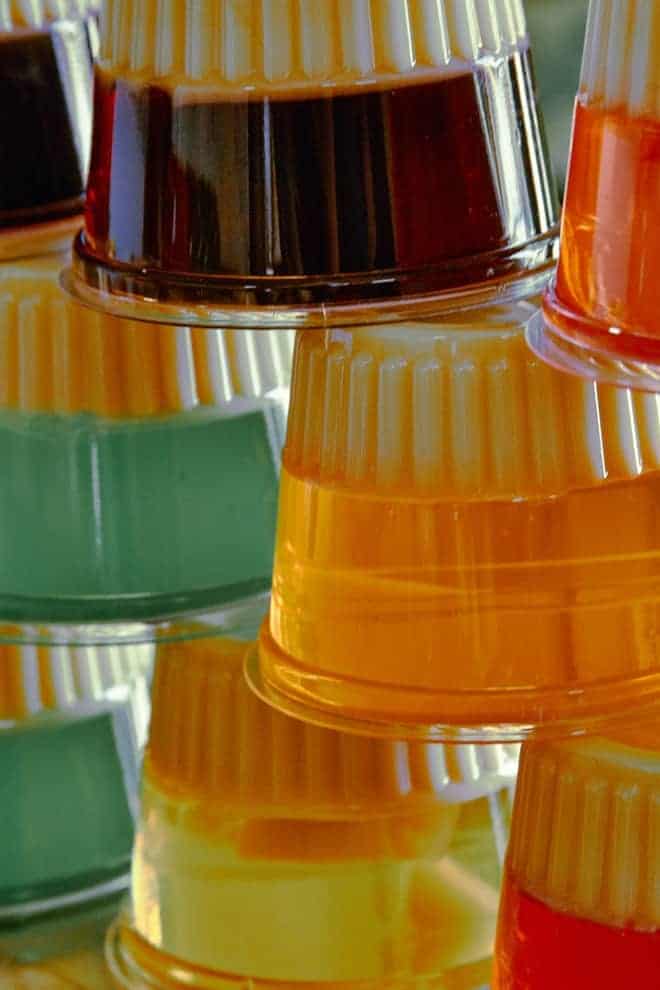One of the most fun and exciting experiences for you and your baby is the moment when they start eating solid foods. This signals that your little one has reached another milestone. Jello has long been thought of as a great snack that doesn’t only taste good but also offers a fun sensory experience at the same time thanks to its attractive colors and jiggly properties.

But can babies eat in the first place?
Technically, babies can eat Jello but it doesn’t mean they should. For starters, Jello doesn’t contain any nutritional value. Instead, it has lots of added sugar that is not recommended for babies 2 years old and below.
Jello only has empty calories rather than nutrient-rich ones that are necessary for your baby’s growth. If you want to give your baby something exciting to eat, there are many other alternatives that you can try.
Continue reading to learn more about Jello and why it is best to keep it out of your baby’s reach.
What is Jello?
Jello is one type of snack made of gelatin and has high sugar content. This is available in different flavors and colors, and many parents seem to think that this is something they can give to their babies.
Aside from the abundant amount of sugar, Jello is also loaded with artificial sweeteners and flavors. As you might already know, it can be very hazardous to have excessive sugar in your little one’s diet. In addition to this, Jello also contains considerable amounts of sodium, not to mention that it doesn’t have any nutritional value.
Thus, it is evident that it is best to avoid giving snacks to your baby that can affect his body’s overall metabolism. This means that Jello is not a good and healthy snack in any way. Also, if you continue to feed Jello to your baby, your little one may fall ill sooner or later.
Your baby may even suffer from severe diseases in the future. To prevent these problems from popping up, it is important to be extra mindful and careful with what you feed to your baby.
It is fine to feed your baby some Jello now and then, but most of the time, it isn’t really good for your baby at all. Your baby will surely like it because of its colorful appearance and sugary flavor. But letting him get used to it may make your baby refuse to eat healthier and more nutritious foods.
Is Jello Safe for Your Baby?
As a high sugar snack, Jello doesn’t contain any nutritional value and worse, it may even become a potential choking hazard, especially for younger babies.
Eating too much sugar may affect the behavior and mood of your baby and pose a higher risk of developing insulin resistance and type 2 diabetes later in life.
Since kids under 2 years old are recommended to avoid a diet with high sugar content, it is best to completely stay away from Jello until your baby reaches at least 2 years of age. You can then let them eat it only in moderation after this age.
Is Jello a Choking Risk for Babies?
Jello shouldn’t pose much of a choking risk for kids over one year of age who can already eat many table foods and can already chew their foods well.
Unfortunately, Jello may actually pose a risk of choking for babies less than one-year-old because of the gelatinous nature of this snack that causes it to clump together. When your baby ends up swallowing one big bite without chewing properly first, there is the possibility that Jello may get lodged or stuck in the throat.
What is the Nutritional Value of Jello?
Every individual cup of Jello contains 1 gram of protein, 70 calories, 17 carbohydrates, 17 grams of sugar, and 40mg of sodium. Jello doesn’t contain fat grams, potassium, iron, calcium, and vitamin D.
In short, Jello doesn’t hold any nutritional value at all for your little one. Although adults can use up to 70 calories on snack treats, your baby requires their calories to contain all the nutrients that can help in their growth and development.
Why Babies Shouldn’t Eat Jello
Jello is almost everyone’s favorite snack, particularly kids. Since teeth are not required to eat Jello, parents love to feed it to their little ones. However, these tasty and colorful treats are not really considered safe for your baby.
Below are the top reasons why you should not let your baby eat Jello at least during the first two years:
- It is loaded with high amounts of sugar.
- This can get stuck in the airway of your baby and cause infection.
- Children can get easily hooked on these snacks and may refuse to have other food.
- Jello offers zero nutritional value.
Can You Give Sugar-Free Jello to Your Baby?
Even if there is Jello labeled as sugar-free, it is still not recommended to give it to your little one or let him grab a bite. Sugar-free Jello contains artificial sweeteners with some sodium content. This means that sugar-free Jello is just the same as its sugar-filled counterpart.
What Age Can Babies Eat Jello?
Children younger than 2 years old should never be allowed to have added sugars in their diet. It means that you should never give your baby food that has some sugar added during the processing.
Since a typical snack cup of Jello contains 17 grams of sugar, 16 grams of which are from added sugar, it is probably best to avoid Jello until after your baby reaches 2 years old. By then, you can start sparingly giving foods or snacks with added sugars after two years of age.
What are Good Substitutes for Jello?
There are many alternatives to Jello that you can give your baby, such as yogurt, ice cream, and pudding. These foods are all high in calcium and protein, which are important for your baby’s growth and development.
Yogurt is a good source of probiotics, which can help keep your baby’s digestive system healthy. Ice cream is a good source of vitamin D, which is important for your baby’s bone health. And pudding is a good source of iron, which is important for your baby’s brain development.
Is Gelatin Good for Babies
There are many benefits of gelatin for babies. For starters, it helps with digestion. Gelatin is a source of protein that is easily digestible, and it can help to soothe an upset stomach. It is also a good source of minerals such as calcium and magnesium. These minerals are important for baby’s development and growth. Gelatin can also help to strengthen bones and teeth. Lastly, gelatin is a great source of collagen, which is important for healthy skin, hair, and nails.
Is Jello Safe During Pregnancy?
Jello is a dessert that many people enjoy during pregnancy. However, there are some questions that people may have about its safety. Some experts say that it is safe to eat jello during pregnancy, while others recommend that pregnant women avoid it because of the potential for dietary deficiency. It is important for pregnant women to speak with their doctor about the specific risks and benefits of each food they consume during pregnancy.
Wrap Up
Sooner or later, you should add sugary foods to your baby’s diet. However, in the case of Jello, it is important to be extra careful and introduce it to them only in small amounts and when they reach the age that they can properly chew food.












